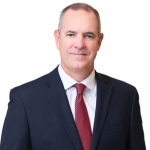Many organizations rely on seasonal workers to supplement their regular workforce during peak times. This often occurs during busy seasons or holidays, as there’s an influx of business activity. While similarities exist, there are important differences between seasonal and regular employment. Due to these differences, hiring and reliance on seasonal workers can present significant and unexpected challenges for employers.
This blog explores seasonal employment, including the reasons organizations hire seasonal workers, considerations when hiring and recruiting seasonal workers, and helpful tips for recruiting and establishing a seasonal workforce.
Why Do Employers Rely on Seasonal Employees?
Employers often hire seasonal workers when they need extra help. This need may be based on industry demands, financial reasons or increased consumer traffic, such as during the holiday season. Seasonal employment is more common in certain industries, such as delivery services, resorts and agriculture.
Seasonal workers can help fill workforce gaps and perform much-needed tasks and responsibilities without employers having to hire full-time employees who may not be needed once the bustle dies down.
Additional Benefits of a Seasonal Workforce
Workforce flexibility—Hiring seasonal employees gives employers flexibility with their workforce. Employers can decide when to hire workers, how many to hire and how long their employment will last.
Cost-effective labor—It may not be economical to hire full-time employees when employers only need workers for a brief or limited duration. Seasonal employees can help reduce workforce costs since seasonal workers are a cost-effective alternative to hiring full-time employees. For example, seasonal employees typically are paid less, do not work enough hours to qualify for overtime, receive less training and do not receive benefits.
Trial employment—By hiring seasonal workers, employers can determine whether those employees will be a good fit for their organization before deciding to hire them as full-time employees.
Hiring Seasonal Employees
Employing seasonal workers to fill workforce gaps can be both beneficial and appealing for employers and employees. However, there are many factors employers need to consider before hiring seasonal employees, as these workers can present certain drawbacks.
Downsides of Hiring Seasonal Workers
Seasonal employees can have high recruiting costs since employers need to recruit them each year, and many seasonal employees do not return once their employment ends. Organizations also generally have less time to train seasonal workers because of their relatively short employment period. In some situations, seasonal workers may receive inferior training than regular employees because their employment is temporary. Some employers may decide not to train seasonal workers to reduce costs and save time. However, the lack of training could negatively impact seasonal workers’ productivity, potentially nullifying the cost-saving benefits of hiring seasonal workers. Additionally, since seasonal employment is temporary, these workers may be less committed to their employer, which could decrease their productivity and negatively impact their work performance.
When deciding to hire seasonal employees, employers need to consider the various federal, state and local employment laws and regulations that may apply. Even if an employee is temporary or employed only for a short period, most federal employment laws still apply to the employment relationship. For example, covered employers must comply with federal antidiscrimination statutes and wage and hour laws—including minimum wage, overtime, recordkeeping and youth wage program requirements—for their seasonal workers. In addition, employers may need to review state laws or local requirements that apply to seasonal employees, such as unemployment insurance, severance pay, sick or other leave, personnel records, mandatory training and predictive scheduling.
Recruiting Seasonal Employees
Assembling a successful and productive seasonal workforce generally hinges on how organizations recruit these workers. Although seasonal employees are temporary, enlisting their services can be a difficult process to navigate. Recruiting seasonal employees differs from selecting full-time employees. Employers’ recruiting efforts need to be deliberate and planned. Making seasonal job postings distinct from other listings can make it easier to find interested individuals.
Additionally, many potential seasonal hires are looking for pay rates, days and shifts required, job requirements and opportunities to receive benefits in the job posting. Employers can set clear expectations for seasonal employees, including length of employment and responsibilities, in job descriptions and throughout the interview process.
Seasonal workers can be equally as selective with job opportunities as full-time employees. To improve an organization’s seasonal recruiting efforts, it’s important to understand what these individuals want. Most seasonal workers are looking for the following:
- Weekly pay
- Flexible scheduling
- Sign-on bonus
- Potential of being hired permanently
- End-of-season bonus
- Discounted products or services from the employer
- Shift meals
By planning early and being prepared, employers can streamline their recruitment process and better identify individuals who will be successful seasonal employees.
Considerations for Establishing a Seasonal Workforce
As with recruiting, there are important concerns organizations need to contend with when establishing a seasonal workforce. Despite the temporary nature of seasonal employment, seasonal workers need to be effectively onboarded to perform their responsibilities well, similar to regular employees. By dedicating sufficient time and resources to onboarding and training seasonal workers, organizations can set these employees up for success. To address potential productivity issues with seasonal employees, employers can train supervisors and managers to work with and manage these employees.
Additionally, seasonal workers may be treated differently by their full-time coworkers because they are temporary. By ensuring seasonal workers are treated similarly to other employees, organizations can improve their productivity and increase the odds of having these workers return next year. This can potentially reduce future recruiting costs. Organizations should also consider treating seasonal departures like those of full-time employees by conducting exit interviews.
While hiring seasonal employees can help with surges in business activity, employers can think long-term regarding seasonal hires. About half of all seasonal hires are interested in full-time positions, according to research from online employment platform Snagajob. Hiring employees on a temporary basis can be a good opportunity to determine if they are suited for long-term employment. Additionally, organizations can discover which seasonal employees may want a long-term commitment or are interested in returning next year.
See Long-Term Success With Seasonal Employment
Although most seasonal employment is temporary, these workers can be valuable assets to employers, especially when responding to surges in business activity or attempting to reduce payroll costs. It’s in an organization’s best interest to ensure that hiring seasonal workers is done competently and efficiently. Through proper planning, establishing best practices and understanding the potential risks of hiring seasonal workers, employers can set their organizations up for long-term success with their seasonal workforce.
For more workplace resources, contact Acentria today
























